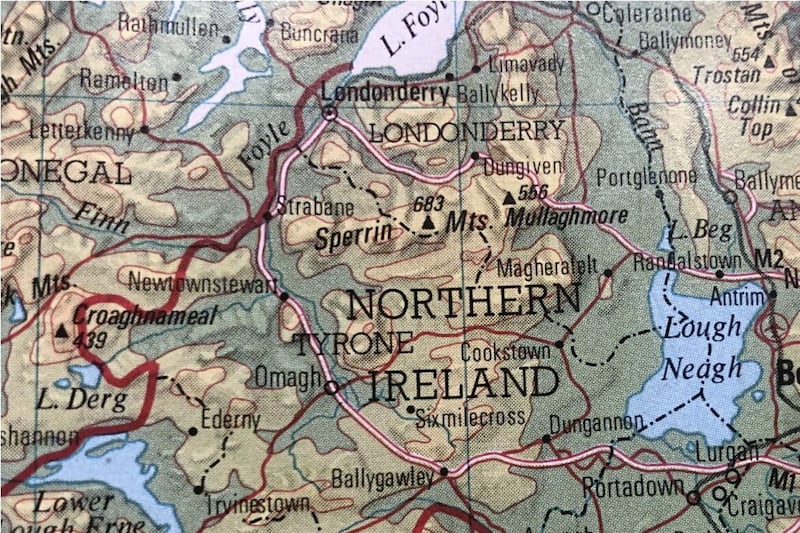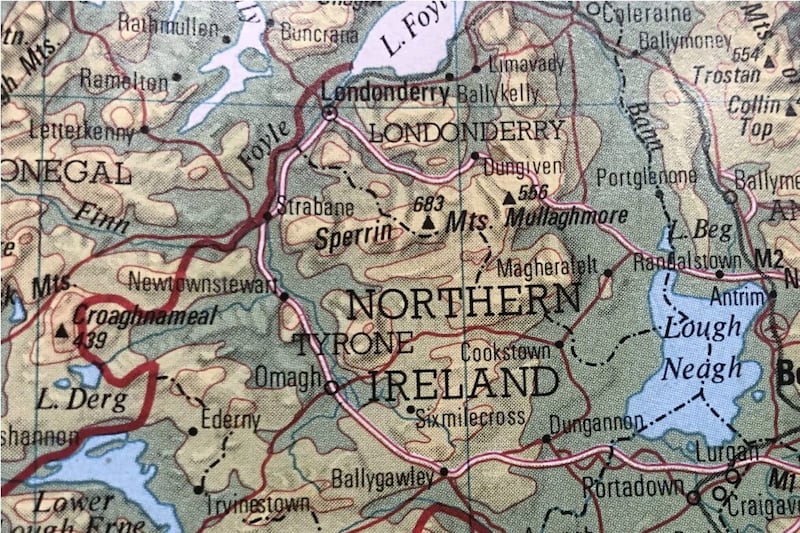IN the early hours of the morning of Saturday June 17 1922, a party numbering between 20 and 30 from the IRA's 4th Northern Division crossed the border from Ravensdale in Co Louth and raided a Protestant farming community in the small townlands of Altnaveigh and Lisdrumliska in south Armagh, approximately five miles from the border and one mile from Newry.
During the rampage, six people were shot dead, others were wounded and at least 12 homes were burned and/or bombed. According to the Irish Times, the "shooting began at about 3 o'clock, and for upward of an hour the countryside echoed to the discharge of rifles and revolvers, while the burning houses lit up the sky".
The main common link of the six people killed was that they were all Protestants. They were husband and wife Thomas (67) and Elizabeth Crozier (age unknown); father and son John (50) and Robert Heaslip (17); James Lockhart (23); and Joseph Gray (20).
Days later an inquest was held where witnesses laid out in stark details the harrowing events that occurred that night in June 1922.
Thomas Crozier was shot in the chest when he opened his door. According to his son-in-law, before he was shot he said, "Don't do a thing like that, Mick." His wife Elizabeth ran to comfort him and cried out to one of the gunmen, "I didn't expect that of you, Willie."
It appears that by identifying one of the assailants her fate was sealed. She was then shot in the arm, lacerating it in such a way that she bled to death within an hour. According to James Marron, who took part in the attack, their "orders were to burn every house and shoot dead every male we could get... But the unfortunate part of it all was; we shot dead one woman (accidentally)".
Joseph Gray and the other 12 people residing in his house were awoken by windows smashing after burning torches were thrown into the house. They were all ordered outside. When his mother asked why they were being attacked, she was told: "It is being done for the Roman Catholics of Belfast."
He was referring to the sectarian violence that was engulfing Belfast at the time where most of the victims were Catholic. After Gray was shot, his sister called the attackers brutes.
She recalled that Gray, who died the next day, lying on the ground, responded: "Don't call them brutes; perhaps they had to do it. Don't send the Specials after them. I forgive them and I hope God will forgive them too. I am going to Jesus."
Gray's father was also shot, in the leg, leaving him permanently lame.
After the attackers had hurled bombs through a window of the Heaslip house, John and his son Robert were caught hiding in a stable after fleeing through the back door. They were taken around to the front of the house and shot dead. The attackers returned minutes later and fired four or five more shots into both lifeless bodies.
James Lockhart was shot dead in front of his mother and his three young sisters after their house had been burned and they had been lined up along the road in their nightclothes. The attacks appeared to be simultaneous, with families hearing shootings from other houses close by.
Given the number of assaults and burnings that took place, it is surprising that only six people were killed. The massacre has since resonated with the Protestant community in much the same way as the Weaver Street bombing and the MacMahon Murders earlier in 1922 resonated with the Catholic community of Belfast.
Although no one has ever been convicted for the Altnaveigh attacks, it was clearly the work of members of the IRA's 4th Northern Division. In the intervening 100 years, there has been much speculation on why the attacks took place and the role, if any, played by the commander of the 4th Northern Division, Frank Aiken, who subsequently became a senior minister in several Fianna Fáil governments.
The attacks were most likely a reprisal for the killings nearby, by loyalists on June 14 of two Catholics, Patrick Creggan and Thomas Crawley, after they had been abducted the previous day. Their bodies were found on the Lislea road, provocatively placed over two mine holes that had been dug by the IRA a few days earlier.
One of the Altnaveigh attackers, Jack McElhaw, claimed Creggan's brother Mick had been arrested in September 1920 partly based on information provided by an Altnaveigh resident. He also stated: "IRA intelligence had little doubt that the Orangemen of Altnaveigh were connected with a lot of the shootings of nationalists which took place in the vicinity of Newry in 1921 and 1922."
The savagery of the Altnaveigh attacks is hard to explain though, given that many other Catholics met similar fates to Creggan and Crawley in the locality at the time without such brutal retribution being meted out.
Some have claimed an attack by 'A' Specials at McGuill's pub in Dromintee on June 14 was the primary reason for the vicious nature of the Altnaveigh attacks. On that night, when the Specials arrived at the pub and discovered the publican James McGuill had gone 'on the run', they proceeded to gang-rape his heavily-pregnant wife, Unah, and sexually assaulted a female servant.
While these brutal assaults would have been fresh in the minds of the Altnaveigh assailants, historian Robert Lynch has convincingly argued that the Altnaveigh attacks were not a reprisal for the assaults in McGuill's pub.
The reprisal for those assaults took place on the same night as the Altnaveigh attacks, on June 17. Directly led by Frank Aiken, who was a close friend of the McGuill family, while other members of the 4th Northern Division were attacking Altnaveigh, he led a group who attacked a patrol of Specials, believed to be responsible for the McGuill pub assaults, at Forkhill barracks, which resulted in the death of Constable Thomas Russell and the wounding of another Special.
Aiken admitted as much when speaking in the Dáil in October 1929, stating, "We shot a few of them. I am sorry we did not get them all."
While it appears Aiken did not directly participate in the Altnaveigh attacks, given his seniority and the meticulous nature with which the attacks in Altnaveigh were planned and carried out, he certainly would have been aware of what was intended and, in all probability, sanctioned the attacks.
Aiken, like most who were involved in the attacks, remained silent afterwards. According to his great-granddaughter and historian Síobhra Aiken in her recently published book Spiritual Wounds: Trauma, Testimony & The Irish Civil War, he "was highly reticent about his revolutionary experience, never speaking to his family about his own actions as a perpetrator or of the suffering inflicted on those close to him".
Witness statements and military service pension applications of IRA members who took part in the Altnaveigh massacre reveal in many ways a sense of shame for their involvement. Participants' names were covered up. Others referred to Altnaveigh, not by name, but as a "special job".
Some suffered from nervous breakdowns, some handed in their revolvers after the attack, while others left Ireland shortly afterwards, leaving for England or America. Wherever they went, they undoubtedly would have been haunted by the terror they inflicted on the Protestant civilians of Altnaveigh on June 17 1922, an incident that has rightly lived on in infamy ever since.
:: Cormac Moore is author of Birth of the Border: The Impact of Partition in Ireland (Merrion Press, 2019).








